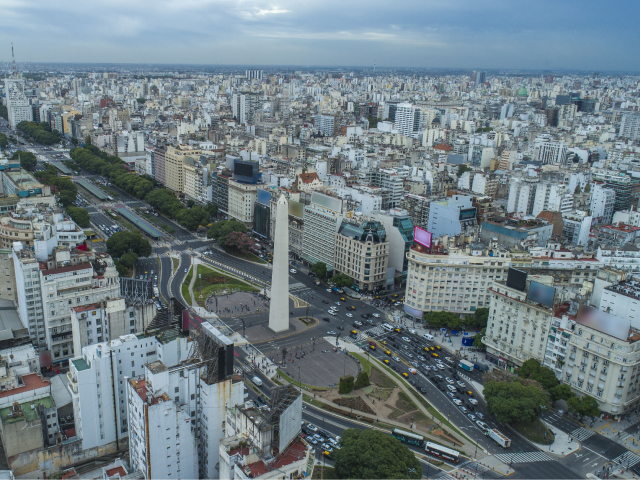
18/06/2020
Changing Habits: Circulation in Argentina Post Covid19
The study, which covered the whole country and included a thousand people aged 16 and over with access to the Internet, aimed to analyse the opinions and assessments of Argentinians on public transport, the effects that the post-pandemic period would have on it and awareness of traffic accidents and their consequences.
In this sense, the report focuses on the security measures that people take -or not- to preserve their physical integrity and their lives when circulating and the perception about the amount of lives that are lost due to road accidents, among other aspects.
Among some of the conclusions drawn from the survey, it is worth mentioning that while 46.8% believe that using public transport will not be more dangerous than walking on the street if the necessary precautions are taken, 42.7% think the opposite and 10.5% say they do not know. However, when asked if they will use public transport once the quarantine is over, one out of every two people said (52.2%) that they will avoid using it, at least until the end of the year.
Subway users were the ones who expressed greater concern about the possibility of contagion than train and bus users, who are also the majority of those who are planning to continue using them. Among those surveyed, the car emerged as the safest alternative and the one most people would turn to (34.1%), followed by the bicycle (27%).
"In Argentina it is expected that, as in the whole world, the pandemic will impact on people's forms of mobility. The context requires an additional focus on the promotion and control of the use of security systems according to transport, since part of the population will change their way of moving and they must be aware that just as precautions must be taken to avoid contagion, they must adopt corresponding security measures. In this sense, and to cite just one example, out of every five respondents who travel by bicycle, only one wears a helmet," said María Fernanda Rodríguez, President of the Gonzalo Rodríguez Foundation.
In this sense, the World Health Organization (WHO) indicates that approximately 67% of serious injuries of cyclists that require hospitalization and 75% of deaths of cyclists are the result of head injuries. According to various estimates, helmets reduce serious head injuries in cyclists of all ages by 63 to 88 per cent. The effectiveness in children is greater because they suffer more falls and more head injuries. Bicycle helmets are effective both in the event of a cyclist falling without the intervention of another vehicle and in collisions between bicycles and motor vehicles.
The New Normality
Although traffic pollution has decreased during the quarantine due to less car traffic and 41% believe that this positive aspect will persist even after the quarantine, most (48%) thought the opposite. The gap widens when the axis of the question is the road accidents, 39.5% are optimistic and think that it will be possible to maintain a decrease in the accidents while 50.4% are on the opposite side and consider that in the coming months the number of deaths and injuries in accidents will be the same as before the start of the pandemic.
Regarding the number of deaths, the survey reveals the lack of knowledge about the large number of lives lost per year in Argentina country in road accidents, as 35.1% believe that the deaths do not exceed 1000, when the real figure is five times: almost 5400. Surprisingly, when asked how many people are acceptable to die from road accidents, 37.8% gave 0, 36.8%: 1 to 999, 15.9%: 1,000 to 4,999, 4.5%: 10,000 to 99,999 and 1.1% considered it acceptable that more than 100,000 people die.
- Share: